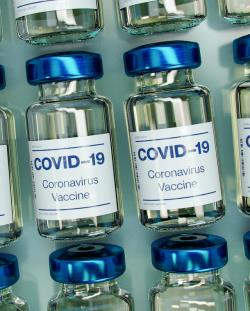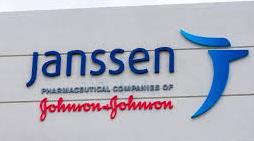 Currently the Pfizer and Moderna mRNA vaccines have received emergency use authorization from the FDA and are being administered to priority groups in the U.S. Additional products will be available with the anticipated approval of the Johnson and Johnson adenovirus vectored, single-dose vaccine during early February. Novavax reported that their nanoparticle product was 89 percent effective in a U.K. study with slightly lower efficacy against the B.1.1.7 variant circulating in that nation. The Novavax product was 50 percent effective against the South African variant that recently emerged in the U.S. This mutant was either introduced by an infected carrier or arose by spontaneous mutation in the U.S.
Currently the Pfizer and Moderna mRNA vaccines have received emergency use authorization from the FDA and are being administered to priority groups in the U.S. Additional products will be available with the anticipated approval of the Johnson and Johnson adenovirus vectored, single-dose vaccine during early February. Novavax reported that their nanoparticle product was 89 percent effective in a U.K. study with slightly lower efficacy against the B.1.1.7 variant circulating in that nation. The Novavax product was 50 percent effective against the South African variant that recently emerged in the U.S. This mutant was either introduced by an infected carrier or arose by spontaneous mutation in the U.S.
 On Friday January 29th regulators in the E.U. approved the AstraZeneca adenovirus-vectored vaccine for use in all nations in the Union. This product is administered as a single dose and can be stored and transported at refrigeration temperature, facilitating distribution in remote areas.
On Friday January 29th regulators in the E.U. approved the AstraZeneca adenovirus-vectored vaccine for use in all nations in the Union. This product is administered as a single dose and can be stored and transported at refrigeration temperature, facilitating distribution in remote areas.
A consensus exists among health authorities that it is necessary to rapidly deploy as many vaccines as possible to immunize populations throughout the World to prevent the emergence of variants that may be resistant to existing mRNA and adenovirus-vectored vaccines.
At the end of January 2021 the WHO documented 103 million cases worldwide with 2.2 million fatalities representing a rate of 284 deaths per one million population. Approximately 75 million people have recovered from COVID-19 with 26 million active cases worldwide.
The U.S. has documented 26.5 million cases and 450,000 fatalities with 16 million recovered and approximately 10 million active cases. The incidence rate of 80,000 per one million population and a fatality rate of 1,350 per million population lead the world and attest to the failure of the U.S. to implement appropriate control measures during the first quarter of 2020 at the onset of the infection.